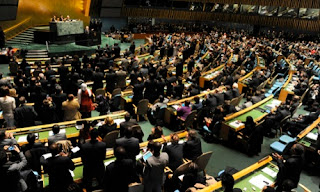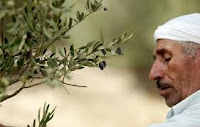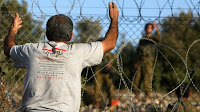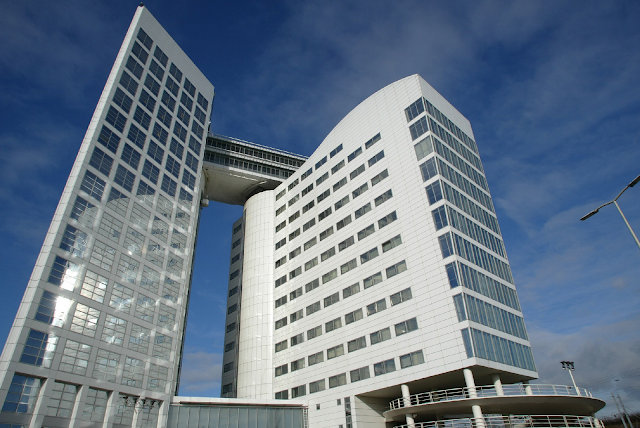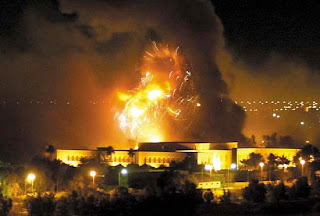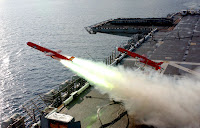Stop killing, Stop Cluster Bomb production, use, stockpiling by all nations -- no exceptions
Editing, comment by Carolyn Bennett
Cluster Munition Coalition reports
AFFECTED COUNTRIES AND TERRITORIES
 Affected by cluster
munitions from use in armed conflict: 37 countries and territories [none are permanent
members of the United Nations Security Council]
Affected by cluster
munitions from use in armed conflict: 37 countries and territories [none are permanent
members of the United Nations Security Council]
fghanistan, Albania, Angola, Azerbaijan, Bosnia-Herzegovina,
Cambodia, Chad, Chechnya, Croatia, Democratic Republic of Congo, Eritrea,
Ethiopia, Falklands/Malvinas, Georgia, Grenada, Iraq, Israel, Kosovo, Kuwait,
Lao PDR, Lebanon, Mauritania, Montenegro, Mozambique, Nagorno-Karabakh, Saudi
Arabia, Serbia, Sierra Leone, South Sudan, Sudan, Syria, Tajikistan, Thailand
Uganda, Vietnam, Western Sahara, Zambia, Yemen
USERS OF CLUSTER MUNITIONS
Used cluster munitions:
19 countries
[In red permanent
members of the United Nations Security Council]
olombia, Eritrea, Ethiopia, France, Georgia, Iraq, Israel,
Libya, Morocco, The Netherlands, Nigeria, Russia, Saudi Arabia, South Africa, Former
Yugoslavia (Serbia), Sudan, Thailand, United Kingdom, United States
PRODUCERS OF CLUSTER MUNITIONS
Produced/still
producing cluster munitions: 35 countries
 [In red permanent
members of the United Nations Security Council]
[In red permanent
members of the United Nations Security Council]
rgentina, Australia, Belgium, Bosnia-Herzegovina, Brazil,
Chile, China,
Croatia, Egypt, France,
Germany, Greece, India, Iran, Iraq, Israel, Italy, Japan, Netherlands, North
Korea, Pakistan, Poland, Romania, Russia, Serbia, Singapore, Slovakia, South Africa,
South Korea, Spain, Sweden, Switzerland, Turkey, United
Kingdom, United States
STOCKPILERS OF CLUSTER MUNITIONS
Stockpiles cluster munitions: 86 countries
[In red permanent
members of the United Nations Security Council]
 A A
|
lgeria, Angola, Argentina, Austria, Azerbaijan, Bahrain,
Belarus, Belgium, Bosnia & Herzegovina, Brazil, Bulgaria, Canada, Chile, China, Colombia,
Croatia, Cuba, Czech Republic, Denmark, Ecuador, Egypt, Eritrea, Estonia,
Ethiopia, Finland, France, Georgia, Germany, Greece, Guinea, Guinea
Bissau, Honduras, Hungary, India, Indonesia, Iran, Iraq, Israel, Italy, Japan,
Jordan, Kazakhstan, Kuwait, Libya, Moldova, Mongolia, Montenegro, Morocco,
Netherlands, Nigeria, North Korea, Norway, Oman, Pakistan, Peru, Poland,
Portugal, Qatar, Romania, Russia, Saudi Arabia, Serbia, Singapore, Slovakia,
Slovenia, South Africa, South Korea, Spain, Sudan, Sweden, Switzerland, Syria,
Thailand, Turkey, Turkmenistan, Uganda, Ukraine, United Arab Emirates, United Kingdom,
United States,
Uzbekistan, Yemen, Zimbabwe
 uman Rights Watch reports today
uman Rights Watch reports today
“(Washington, DC) – Compelling evidence has emerged that an
airstrike using cluster bombs on the town of Deir al-`Assafeer near Damascus
killed at least 11 children and wounded others on November 25, 2012. The Syrian
government should immediately cease its use of this highly dangerous weapon,
which has been banned by most nations.”
“At least 16 governments have condemned Syria’s use of
cluster munitions, including Austria, Belgium, Denmark, France, Germany, Ireland, Japan,
Mexico, Netherlands, New Zealand, Norway, Portugal, Qatar, Switzerland, the United Kingdom,
and the United
States.
n my view, it is dishonest and cowardly for either permanent members of
the UN Security Council, who have failed to sign or become member states to the
Convention on Cluster Munitions, or Human Rights Watch to cite or reprimand Syria for alleged bombing and as a non member to the CCM and fail to cite and reprimand in context the United States' leading model in using, making, stockpiling the munitions and failing to become signatory or member to the Convention.
This is why nonprofits, “rights” organizations, and the “international
community” increasingly show themselves as and are judged lacking in credibility.
 Convention on Cluster Munitions (CCM) reports
Convention on Cluster Munitions (CCM) reports
onvention Status
The Convention was adopted in Dublin by 107 states on May 30,
2008, and signed in Oslo on December 3 the same year.
The Convention became binding international law when it
entered into force on August 1, 2010.
By October 8, 2012, a total of 111 states have joined the
Convention, as 77 States Parties and 34 Signatories.
77 States
Parties (by region)
|
34
Signatories (by region)
|
Africa
(22)
|
Africa
(20)
|
Botswana,
Burkina Faso, Burundi, Cameroon, Cape Verde, Comoros, Côte d’Ivoire, Ghana,
Guinea-Bissau, Lesotho, Malawi, Mali, Mauritania, Mozambique, Niger, Senegal,
Seychelles, Sierra Leone, Swaziland, Togo, Tunisia, Zambia
|
Angola,
Benin, Central African Republic, Chad, Congo, Democratic Republic of Congo,
Djibouti, Gambia, Guinea, Kenya, Liberia, Madagascar, Namibia, Nigeria,
Rwanda, Sao Tome and Principe, Somalia, South Africa, Uganda and United
Republic of Tanzania
|
Americas
(16)
|
Americas
(6)
|
Antigua
and Barbuda, Chile, Costa Rica, Dominican Republic, Ecuador, El Salvador,
Grenada, Guatemala, Honduras, Mexico, Nicaragua, Panama, Peru, Saint Vincent
and the Grenadines, Trinidad and Tobago, Uruguay
|
Bolivia,
Canada, Colombia, Haiti, Jamaica, Paraguay
|
Asia
(3)
|
Asia
(2)
|
Afghanistan,
Japan, Lao PDR
|
Indonesia,
Philippines
|
Europe
(30)
|
Europe
(3)
|
Albania,
Austria, Belgium, Bosnia and Herzegovina, Bulgaria, Croatia, Czech Republic,
Denmark, France, Germany, Holy See, Hungary, Ireland, Italy, Lithuania,
Luxembourg, the FYR of Macedonia, Malta, Moldova, Monaco, Montenegro,
Netherlands, Norway, Portugal, San Marino, Slovenia, Spain, Sweden,
Switzerland, United Kingdom
|
Cyprus,
Iceland, Liechtenstein
|
Middle
East (1)
|
Middle
East (1)
|
Lebanon
|
Iraq
|
Pacific
(5)
|
Pacific
(2)
|
Australia,
Cook Islands, Fiji, New Zealand, Samoa
|
Nauru,
Palau
|
 States adopting the Convention on Cluster Munitions in 2008
States adopting the Convention on Cluster Munitions in 2008
107 states adopted the Convention in Dublin on May 30, 2008:
AFRICA: Angola,
Benin, Botswana, Burkina Faso, Burundi, Cameroon, Chad, Comoros, Republic of
Congo, Côte d’Ivoire, Democratic Republic of Congo, Ghana, Guinea,
Guinea-Bissau, Kenya, Lesotho, Madagascar, Malawi, Mali, Mauritania, Morocco,
Mozambique, Niger, Nigeria, Sao Tome and Principe, Senegal, Seychelles, Sierra
Leone, South Africa, Sudan, Swaziland, Tanzania, Togo, Uganda and Zambia
AMERICAS: Argentina,
Belize, Bolivia, Canada, Chile, Costa Rica, Dominican Republic, Ecuador, El
Salvador, Guatemala, Honduras, Jamaica, Mexico, Nicaragua, Panama, Paraguay,
Peru, Uruguay and Venezuela
ASIA: Brunei
Darussalam, Cambodia, Indonesia, Japan, Kyrgyzstan, Lao PDR, Malaysia,
Philippines and Timor-Leste
EUROPE: Albania,
Austria, Belgium, Bosnia and Herzegovina, Bulgaria, Croatia, Czech Republic,
Denmark, Estonia, Finland, France, Germany, Holy See, Hungary, Iceland,
Ireland, Italy, Lithuania, Luxembourg, Macedonia (FYR), Malta, Moldova,
Montenegro, The Netherlands, Norway, Portugal, San Marino, Serbia, Slovakia,
Slovenia, Spain, Sweden, Switzerland and United Kingdom
MIDDLE EAST:
Bahrain, Lebanon and Qatar
PACIFIC:
Australia, Cook Islands, Fiji, New Zealand, Palau, Papua New Guinea, Samoa and
Vanuatu
Sources and notes
Cluster Munition Coalition
http://www.stopclustermunitions.org/the-problem/countries/
Cluster bomb image caption: A screenshot from an unverified
video posted by opposition activists purportedly showing cluster bombs in Deir
al-Asafir
Human Rights Watch
today
“Syria: Evidence Shows Cluster Bombs Killed Children ─ All
Governments Should Press Damascus to Stop Using Cluster Munitions,” November 27, 2012, http://www.hrw.org/news/2012/11/27/syria-evidence-shows-cluster-bombs-killed-children-0
http://www.clusterconvention.org/ratifications-and-signatures/
THE OSLO PROCESS
In February 2007, 46 governments met in Oslo to endorse a
call by Norwegian Foreign Minister Jonas Gahr Støre to conclude a new legally
binding instrument in 2008.
The Convention prohibits the use, production, transfer and
stockpiling of cluster munitions, and requires states to destroy existing
stockpiles of the weapons, clear contaminated areas and assist survivors and
affected communities.
Subsequent international Oslo Process meetings were held in
Peru (May 2007), Austria (December 2007), and New Zealand (February 2008).
Some 107 countries negotiated and adopted the Convention on
Cluster Munitions in May 2008 in Dublin, Ireland.
The convention was signed by 94 countries at the Signing
Conference in Oslo in December 2008 and entered into force as binding
international law on 1 August 2010, after it reached the threshold of 30
ratifications in February 2010, just 15 months after it opened for signature.
All countries can still accede to the convention at the
United Nations headquarters in New York.
http://www.stopclustermunitions.org/the-problem/
___________________________________
Bennett's books are available in New York State independent bookstores: Lift Bridge Bookshop: www.liftbridgebooks.com [Brockport, NY]; Sundance Books: http://www.sundancebooks.com/main.html [Geneseo, NY]; Mood Makers Books: www.moodmakersbooks.com [City of Rochester, NY]; Dog Ears Bookstore and Literary Arts Center: www.enlightenthedog.org/ [Buffalo, NY]; Burlingham Books – ‘Your Local Chapter’: http://burlinghambooks.com/ [Perry, NY 14530]; The Bookworm: http://www.eabookworm.com/ [East Aurora, NY] • See also: World Pulse: Global Issues through the eyes of Women: http://www.worldpulse.com/ http://www.worldpulse.com/pulsewire
http://www.facebook.com/#!/bennetts2ndstudy
___________________________________

[Israeli Prime Minister Binyamin Netanyahu, at best, views negotiations in the context of photo opportunities and handshakes to improve his international image and keep public opinion quiet. At worst, he exploits the ‘process’ to continue settlement expansion, the annexation of Jerusalem, and the ‘enjoyment’ of an American-led legal cover to enable him to act with impunity.
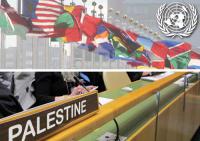 “Israel is deliberately destroying the two-state solution,
as well as the chances for peace and security in the region and beyond.
“Israel is deliberately destroying the two-state solution,
as well as the chances for peace and security in the region and beyond.  Afghanistan, Algeria, Angola, Antigua and Barbuda,
Argentina, Armenia, Austria, Azerbaijan, Bahrain, Bangladesh, Belarus, Belgium,
Belize, Benin, Bhutan, Bolivia, Botswana, Brazil, Brunei Darussalam, Burkina
Faso, Burundi, Cambodia, Cape Verde, Central African Republic, Chad, Chile,
China, Comoros, Congo, Costa Rica, Côte d’Ivoire, Cuba, Cyprus, Democratic
People’s Republic of Korea, Denmark, Djibouti, Dominica, Dominican Republic,
Ecuador, Egypt, El Salvador, Eritrea, Ethiopia, Finland, France, Gabon, Gambia,
Georgia, Ghana, Greece, Grenada, Guinea, Guinea-Bissau, Guyana, Honduras,
Iceland, India, Indonesia, Iran, Iraq, Ireland, Italy, Jamaica, Japan, Jordan,
Kazakhstan, Kenya, Kuwait, Kyrgyzstan, Lao People’s Democratic Republic,
Lebanon, Lesotho, Libya, Liechtenstein, Luxembourg, Malaysia, Maldives, Mali,
Malta, Mauritania, Mauritius, Mexico, Morocco, Mozambique, Myanmar, Namibia,
Nepal, New Zealand, Nicaragua, Niger, Nigeria, Norway, Oman, Pakistan, Peru,
Philippines, Portugal, Qatar, Russian Federation, Saint Kitts and Nevis, Saint
Lucia, Saint Vincent and the Grenadines, Sao Tome and Principe, Saudi Arabia,
Senegal, Serbia, Seychelles, Sierra Leone, Solomon Islands, Somalia, South
Africa, South Sudan, Spain, Sri Lanka, Sudan, Suriname, Swaziland, Sweden,
Switzerland, Syria, Tajikistan, Thailand, Timor-Leste, Trinidad and Tobago,
Tunisia, Turkey, Turkmenistan, Tuvalu, Uganda, United Arab Emirates, United
Republic of Tanzania, Uruguay, Uzbekistan, Venezuela, Viet Nam, Yemen, Zambia,
Zimbabwe.
Afghanistan, Algeria, Angola, Antigua and Barbuda,
Argentina, Armenia, Austria, Azerbaijan, Bahrain, Bangladesh, Belarus, Belgium,
Belize, Benin, Bhutan, Bolivia, Botswana, Brazil, Brunei Darussalam, Burkina
Faso, Burundi, Cambodia, Cape Verde, Central African Republic, Chad, Chile,
China, Comoros, Congo, Costa Rica, Côte d’Ivoire, Cuba, Cyprus, Democratic
People’s Republic of Korea, Denmark, Djibouti, Dominica, Dominican Republic,
Ecuador, Egypt, El Salvador, Eritrea, Ethiopia, Finland, France, Gabon, Gambia,
Georgia, Ghana, Greece, Grenada, Guinea, Guinea-Bissau, Guyana, Honduras,
Iceland, India, Indonesia, Iran, Iraq, Ireland, Italy, Jamaica, Japan, Jordan,
Kazakhstan, Kenya, Kuwait, Kyrgyzstan, Lao People’s Democratic Republic,
Lebanon, Lesotho, Libya, Liechtenstein, Luxembourg, Malaysia, Maldives, Mali,
Malta, Mauritania, Mauritius, Mexico, Morocco, Mozambique, Myanmar, Namibia,
Nepal, New Zealand, Nicaragua, Niger, Nigeria, Norway, Oman, Pakistan, Peru,
Philippines, Portugal, Qatar, Russian Federation, Saint Kitts and Nevis, Saint
Lucia, Saint Vincent and the Grenadines, Sao Tome and Principe, Saudi Arabia,
Senegal, Serbia, Seychelles, Sierra Leone, Solomon Islands, Somalia, South
Africa, South Sudan, Spain, Sri Lanka, Sudan, Suriname, Swaziland, Sweden,
Switzerland, Syria, Tajikistan, Thailand, Timor-Leste, Trinidad and Tobago,
Tunisia, Turkey, Turkmenistan, Tuvalu, Uganda, United Arab Emirates, United
Republic of Tanzania, Uruguay, Uzbekistan, Venezuela, Viet Nam, Yemen, Zambia,
Zimbabwe.


